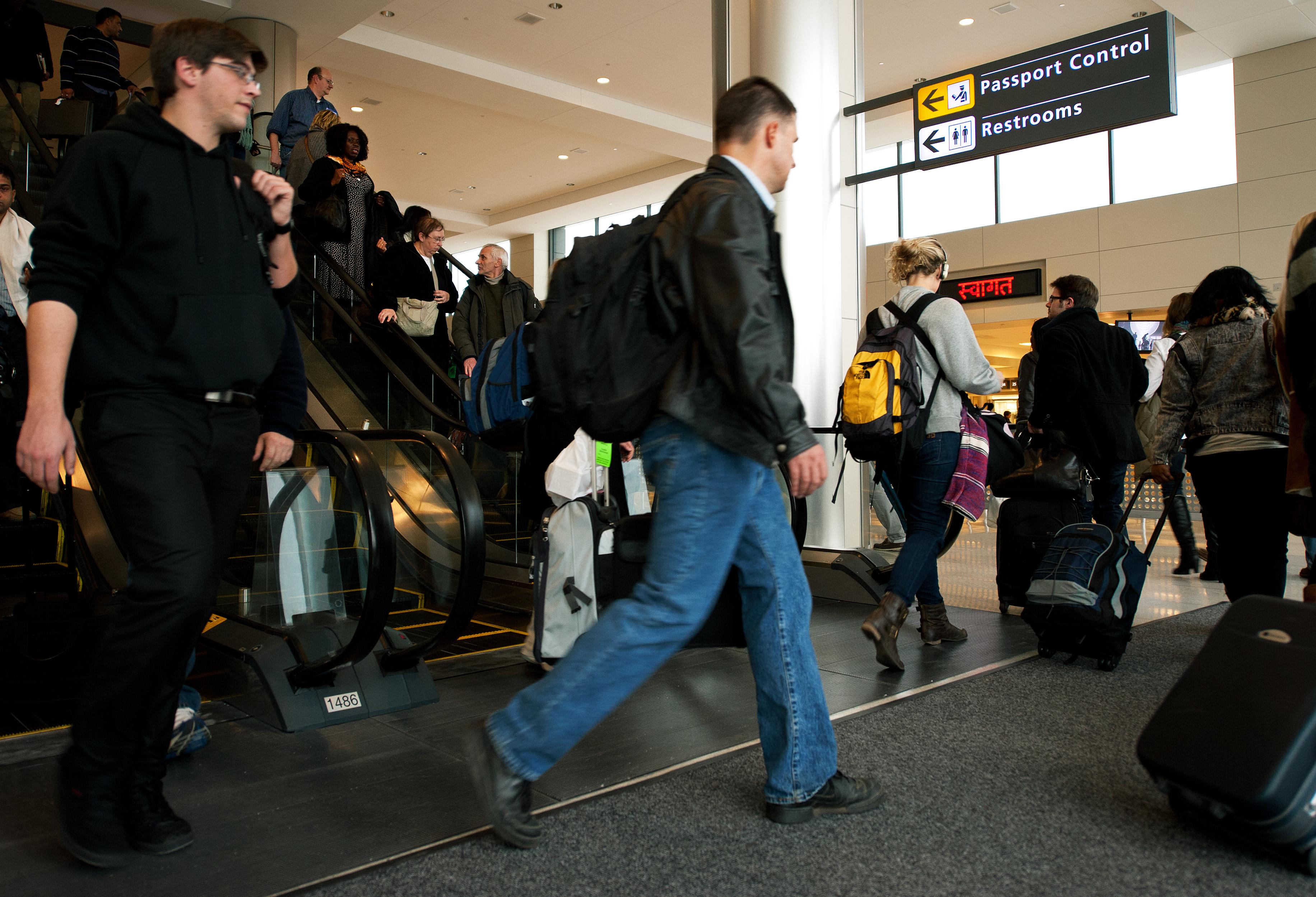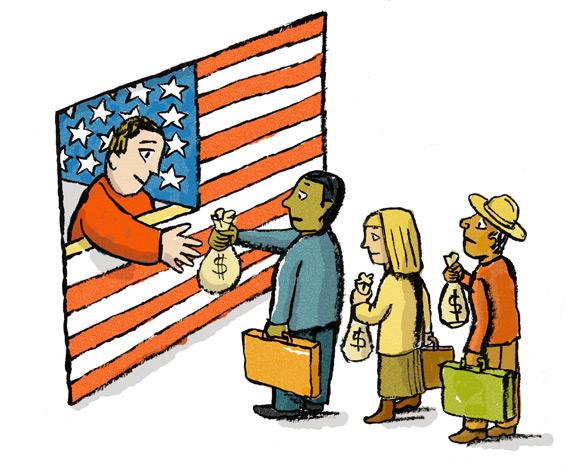St. Kitts and Nevis, the Caribbean location of the world’s first machete attack on a U.S. Supreme Court justice, also sporadically attracts the world’s attention for its unusual citizenship practices. That’s because you too can be a Kittitian and Nevisian for the not-so-low price of $250,000. All you have to do is hand over the cash.
Why would you want such a thing? Well, for residents of developing countries gaining access to a potential exit strategy in case of political instability is valuable. Some members of the old Egyptian elite, for example, might wish they had a nice island to flee to. For the rest, the islands’ lack of income taxation may be all the inducement needed. As for the islands themselves, every bit of export earnings helps, especially since this particular form involves virtually no sacrifice on the part of the native-born. Indeed, the fact that the rather meager benefits the islands offer command such a high price naturally raises the question of whether a country that people actually want to move to—the United States of America, say—should get in on the game.
After all, lots of people want to come here. They want to come so badly that we spend more than $5 billion a year trying to keep them out. They want to come so badly that they pay thousands of dollars to coyotes to help them sneak past Immigration and Customs Enforcement and Customs and Border Patrol. Having made the dangerous journey, they then work without proper papers or legal rights.
Surely people willing to pay for a dangerous and illegal cross-border trip would be happy to pay somewhat higher amounts for the safety and convenience of a legal work permit. What’s more, a program to sell work permits would open us up to a much larger potential market of buyers. Illegal immigration is heavily tilted toward Mexicans for the obvious reason that Mexico is adjacent to the United States. But Mexico is hardly the poorest country on earth. Indeed, once you adjust for cost of living, Mexico turns out to be above average. The really poor parts of Latin America are further south, but it’s hard to sneak over here from Guatemala or Peru. To say nothing of India which, despite the hype, is still home to hundreds of millions of people living in soul-crushing poverty. And consider that many medium-skilled residents of middle-income countries around the world—people for whom the illegal immigrant lifestyle lacks all appeal—might still want to come to the United States if there were a legal way to do it. As you may have heard, the outlook for Greece and Portugal doesn’t look so hot at the moment. The strict economic logic of the situation calls for Greeks and Portuguese to migrate to more stable northern Eurozone countries like Germany and Finland. But for a whole range of cultural and historical reasons, Houston is probably a more immigrant-friendly location than Helsinki. There’s no grand tradition of moving across the ocean to seek the Finnish Dream.
How many people might want to come? And how much could we charge them for the privilege? The answer, on both scores, seems to be a lot. Michael Clements from the Center for Global Development points out that the State Department’s Fiscal Year 2010 diversity lottery for visas attracted 13.6 million applications for 50,000 visas. And that was a lottery that everyone knows you have very little chance of winning, held during the depths of a massive U.S. recession. In a separate 2008 paper, Clemens along with Claudio Montenegro and Lant Pritchett estimated that “the wages of a Peruvian worker willing to work in the United States are about 2.6 times as much as the same person would make in Peru,” a result that’s about average for the 42 countries they were able to obtain sufficient data for. There is, however, a great deal of variation—for a typical Haitian the figure is 7 times as much.
The slots, in other words, are in high demand because they are both scarce and valuable. Selling them would be a sensible approach. In a 2011 paper for the Institute of Economic Affairs, Gary Becker suggested a flat fee of $50,000 per immigrant. This is a rather steep bill for a low-income worker, but he points out that lending arrangements could be easily arranged to allow a migrant to pay off his fee over a period of years.

Photograph by Paul J. Richards/AFP/Getty Images.
For logistical reasons, it might be better to organize payments the other way around—have Congress set a number of slots, and then auction them off. This way we could start with the kind of small-scale program people are likely to be more comfortable with and see what happens. Turn the 50,000 diversity slots into an auction (or several separate regionally segmented options) and then decide based on the results whether we want to expand our offerings. My guess is that when the revenue starts flowing in, people will be surprised by how high the bids are and public support for immigration will increase. Revenues could be split between the federal government and whatever local jurisdiction the immigrant moves to.
There should be no shortage of people eager to pay for the privilege of working in the United States. Gallup’s polling suggests that 700 million people would like to permanently relocate to another country, of which 165 million name the United States as their top choice. Some of the remaining 535 million would doubtless be willing to accept us as a second-best alternative. And more to the point, a very large number of people might want to come and work here for a few years and then return home to re-engage with extended family and take advantage of the lower price level. An influx of workers would displace some Americans from their current jobs, but on net should boost employment as new people will spur demand for homes, clothing, food, transportation, and all the rest.
The potential fiscal gains from selling access to the U.S. labor market are not, in my view, even close to being the most important part of the case for more liberal immigration laws. But they might be a good place to start. Americans spend a lot of time feeling besieged these days. It’s worth noting that one of the problems weighing heavily on the national conscience—the overwhelming desire of foreigners to come live and work in our country—should be viewed as an asset. If everyone decided America was a terrible place to be, the illegal immigration problem would go away but we’d hardly be better off for it. We, the native born citizens of the United States, are sitting on a gold mine much more valuable than anything St. Kitts has to offer. We ought to put it to use.
